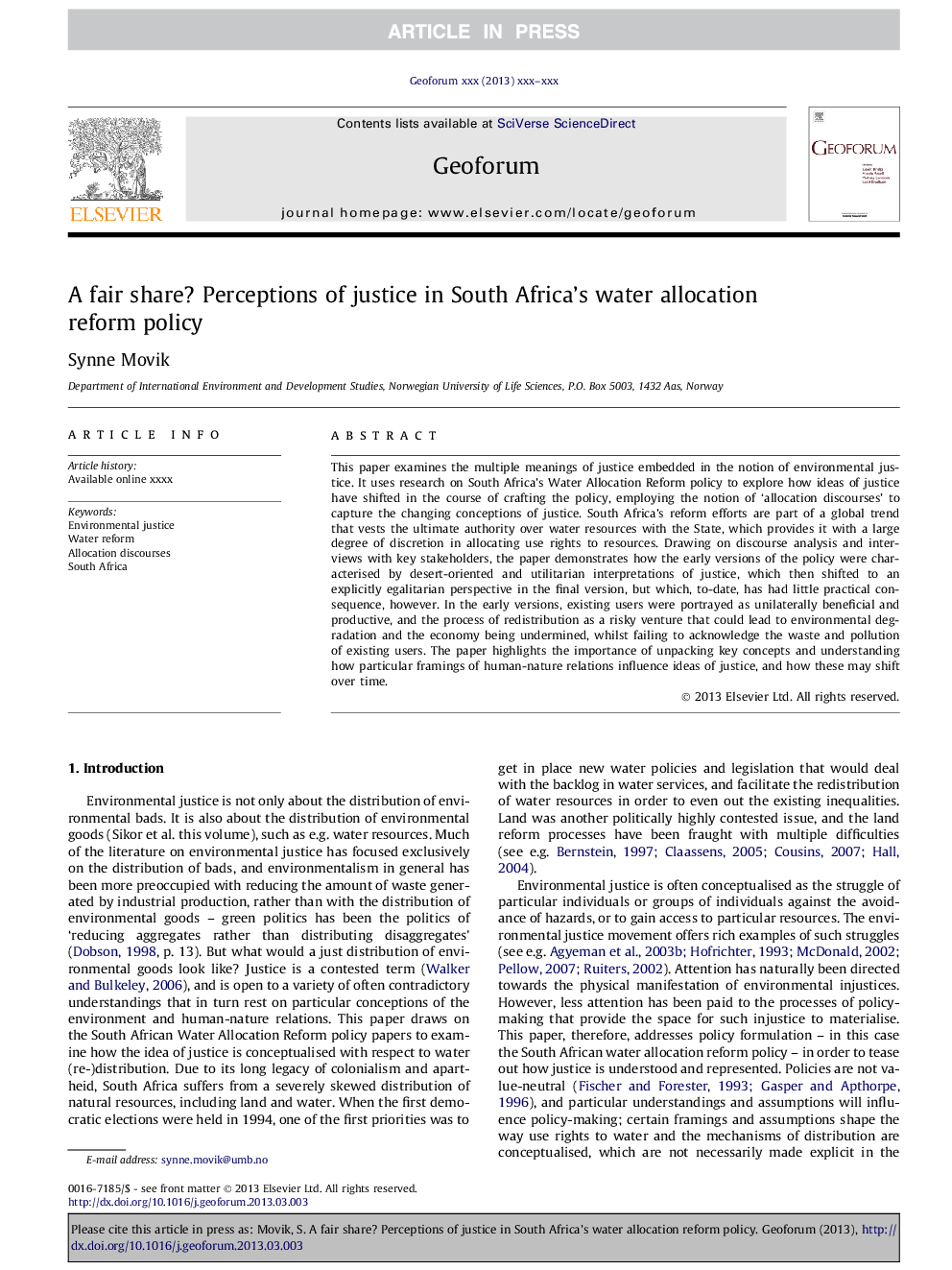| Article ID | Journal | Published Year | Pages | File Type |
|---|---|---|---|---|
| 5074015 | Geoforum | 2014 | 9 Pages |
Abstract
This paper examines the multiple meanings of justice embedded in the notion of environmental justice. It uses research on South Africa's Water Allocation Reform policy to explore how ideas of justice have shifted in the course of crafting the policy, employing the notion of 'allocation discourses' to capture the changing conceptions of justice. South Africa's reform efforts are part of a global trend that vests the ultimate authority over water resources with the State, which provides it with a large degree of discretion in allocating use rights to resources. Drawing on discourse analysis and interviews with key stakeholders, the paper demonstrates how the early versions of the policy were characterised by desert-oriented and utilitarian interpretations of justice, which then shifted to an explicitly egalitarian perspective in the final version, but which, to-date, has had little practical consequence, however. In the early versions, existing users were portrayed as unilaterally beneficial and productive, and the process of redistribution as a risky venture that could lead to environmental degradation and the economy being undermined, whilst failing to acknowledge the waste and pollution of existing users. The paper highlights the importance of unpacking key concepts and understanding how particular framings of human-nature relations influence ideas of justice, and how these may shift over time.
Related Topics
Social Sciences and Humanities
Economics, Econometrics and Finance
Economics and Econometrics
Authors
Synne Movik,
